News in Brief
-
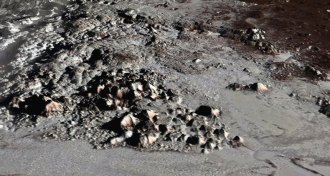 Planetary Science
Planetary ScienceFirst global maps of Pluto and Charon show the worlds’ highs and lows
New charts of Pluto and its moon Charon, compiled using New Horizons’ data, reveal high peaks, deep depressions and strange ridges.
-
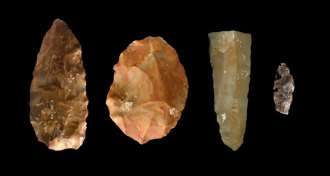 Archaeology
ArchaeologyTexas toolmakers add to the debate over who the first Americans were
Stone toolmakers inhabited Texas more than 16,000 years ago, before Clovis hunters arrived.
By Bruce Bower -
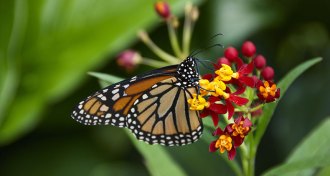 Climate
ClimateBloodflowers’ risk to monarchs could multiply as climate changes
High atmospheric carbon dioxide levels can weaken the medicinal value of a milkweed that caterpillars eat, and high temperatures may make the plant toxic.
By Susan Milius -
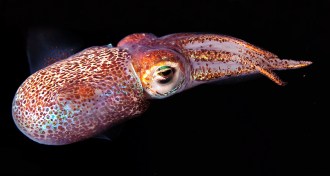 Life
LifeBobtail squid coat their eggs in antifungal goo
Hawaiian bobtail squid keep their eggs fungus-free with the help of bacteria.
-
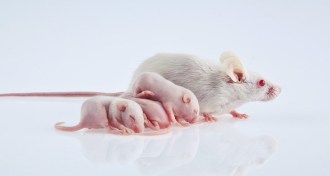 Neuroscience
NeuroscienceVaginal microbes in mice transfer stress to their pups
During birth, microbes from a stressed mouse mother can carry some aspects of stress to her offspring.
-
 Astronomy
AstronomyAstronomers snap the first baby pictures of a planet
New telescope images give the clearest view of an exoplanet embryo yet.
-
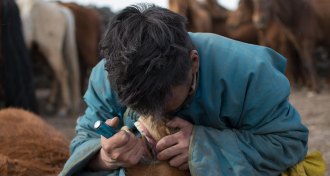 Archaeology
ArchaeologyMongolians practiced horse dentistry as early as 3,200 years ago
Horse dentistry got an early start among Bronze Age Mongolian herders.
By Bruce Bower -
 Life
LifeZika gets the most extreme close-up of any flavivirus
The closest look yet at Zika virus may reveal some vulnerabilities.
-
 Neuroscience
NeuroscienceWatch the brain jiggle with each heartbeat
A new twist on MRI can reveal how the brain wiggles.
-
 Life
LifeHere’s how drinking coffee could protect your heart
Coffee’s heart-healthy effects rely on boosting cells’ energy production, a study in mice suggests.
-
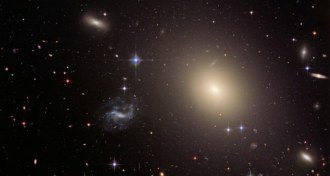 Physics
PhysicsEinstein’s general relativity reigns supreme, even on a galactic scale
Scientists have made the most precise test of Einstein’s theory of gravity at great distances.
-
 Astronomy
AstronomySwirling gases reveal baby planets in a young star’s disk
A new technique pinpointed three planets forming around a young star about 330 light-years from Earth.